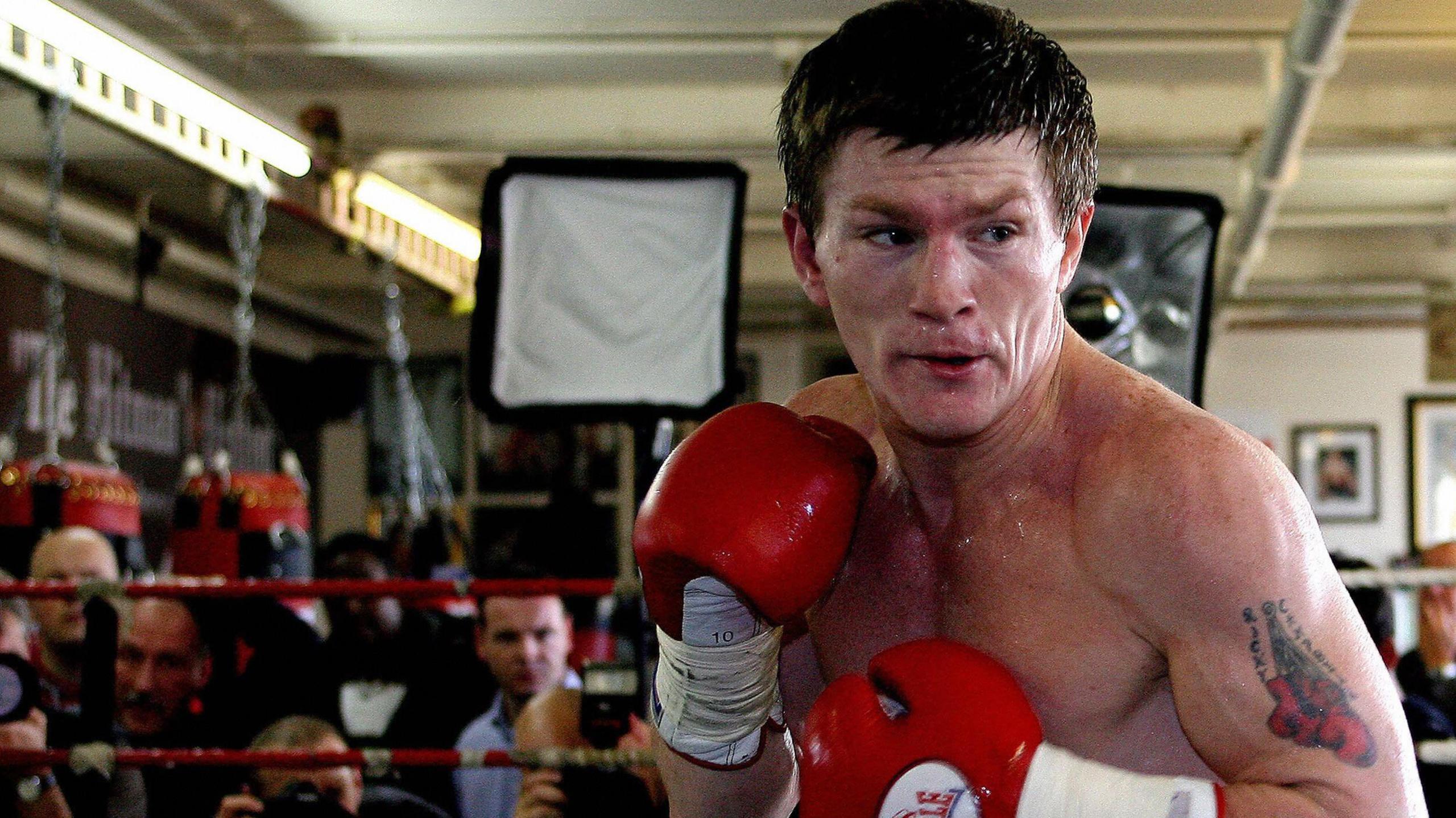Ricky Hatton will forever be remembered as boxing’s ultimate people’s champion – a blue-collar warrior who fought with the fiery passion of Manchester coursing through his veins. The tributes flooding in since his passing at 46 reveal more than just respect for his titles; they paint a portrait of a man who embodied the grit, humor, and heart of his hometown while conquering the global stage.
The Rise of a Working-Class Hero
Hatton’s story began not in glitzy arenas, but in the basement gym of his parents’ Hyde pub. At 12, he hammered away at a heavy bag, dreaming of greatness while grounded in the unpretentious ethos of Greater Manchester. This duality defined him: a fighter who’d trade blistering body shots with Kostya Tszyu under blinding lights, then unwind with fans at his local. His training base? A sweat-soaked space above his dad’s carpet shop – a detail he proudly carried into his 2007 ring walk against Mayweather, emblazoning his robe with the family business advertisement. He reached the very top, said Richie Woodhall, yet remained the bloke you’d share a brew with.
The People’s Champion: A Legacy Forged in Grit and Glory
No phrase captures Hatton’s essence better than people’s champion. As BBC’s Steve Bunce reflected, Nobody before or since has embodied that title like Ricky. His 43-0 run wasn’t built on flawless technique but on relentless pressure, a brawler’s courage, and an almost spiritual connection with supporters. Manchester City scarves waved furiously whenever he fought; Oasis anthems roared as he marched toward battles against Tszyu, Mayweather, and Pacquiao. He wasn’t just their boxer – he was their neighbor, the pub regular who turned global star without losing his accent or his affability.
Behind the electric nights lay staggering sacrifice. Hatton drained himself to make weight, harnessing a work ethic that astonished even hard-nosed trainers. He shouldn’t have been this good, Bunce admitted. But his determination defied logic. That fire led to iconic wins, like the 2005 demolition of Tszyu that cemented his status as Britain’s most beloved fighter since the days of Henry Cooper.
Battles Beyond the Ring: Vulnerability in Victory and Defeat
Hatton’s transparency about his post-fight struggles deepened his bond with fans. Crushing losses to Mayweather and Pacquiao plunged him into depression, a stark contrast to the jubilant scenes at Manchester’s MEN Arena after his triumphs. He spoke openly about alcoholism, mental health battles, and the dark holes he navigated after retiring in 2012. He faced his demons head-on, Bunce noted, just like he faced every opponent.
This vulnerability made his brief 2022 exhibition comeback against Marco Antonio Barrera profoundly symbolic – not about reclaiming glory, but reclaiming himself. Later, he channeled his wisdom into training and electrifying after-dinner speeches, his wit intact even as he mentored the next generation, including his son Campbell.
An Enduring Impact: How Hatton Transcended Sport
Athletes across disciplines united in mourning, revealing how Hatton’s influence stretched far beyond boxing. Wayne Rooney, who once carried his belts to the ring, called him a legend, a warrior, and a great person. Darts icon Phil Taylor and cricket hero Andrew Flintoff echoed the sentiment, while promoter Frank Warren hailed him as the man who inspired a generation of British fighters.
Even UFC superstar Conor McGregor, who patterned his own rise after Hatton’s fan-first ethos, paid homage to his blueprint. This cross-sport reverence underscores a rare truth: Hatton’s legacy isn’t measured in belts alone, but in the visceral joy he gave working-class dreamers worldwide.
Why Ricky Hatton Remains Unforgettable
In an era of carefully curated athlete brands, Hatton was gloriously real – flawed, funny, and ferociously loyal to his roots. He packed stadiums not just with punches, but with personality. As Tyson Fury poignantly posted: There will only ever be one Ricky Hatton.
Today, as Manchester grieves, it also celebrates a man who proved greatness isn’t about perfection. It’s about passion. It’s about showing up – for your city, your supporters, and yourself – with every part of your soul. That’s why, decades from now, new fans will still discover the people’s champion who fought like thunder and loved like family.
